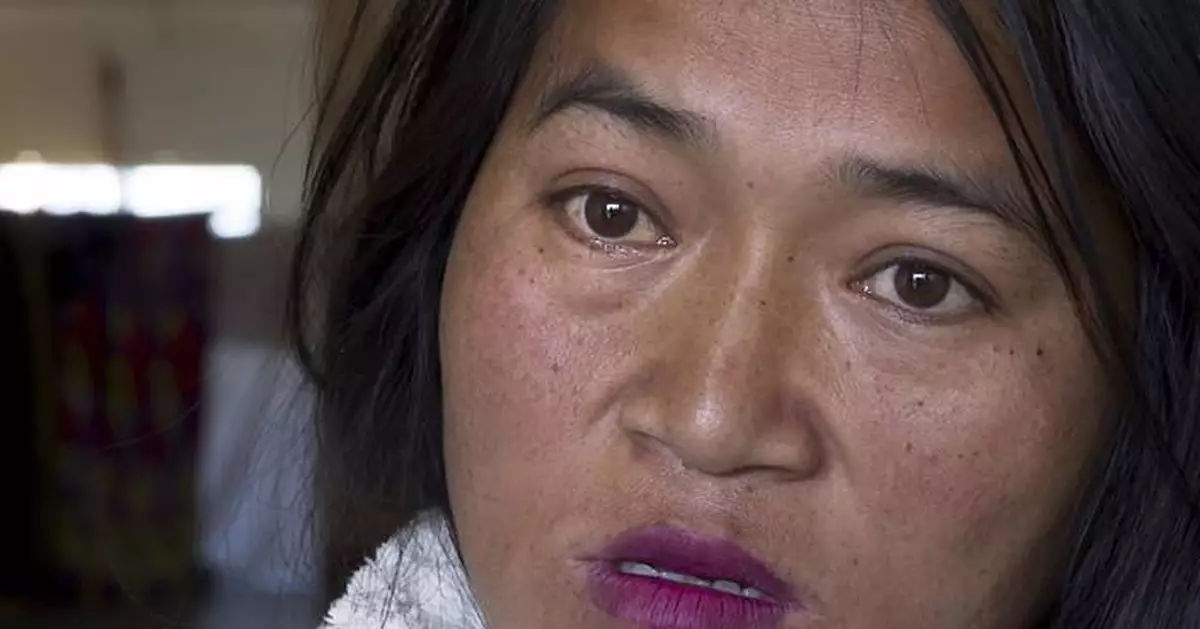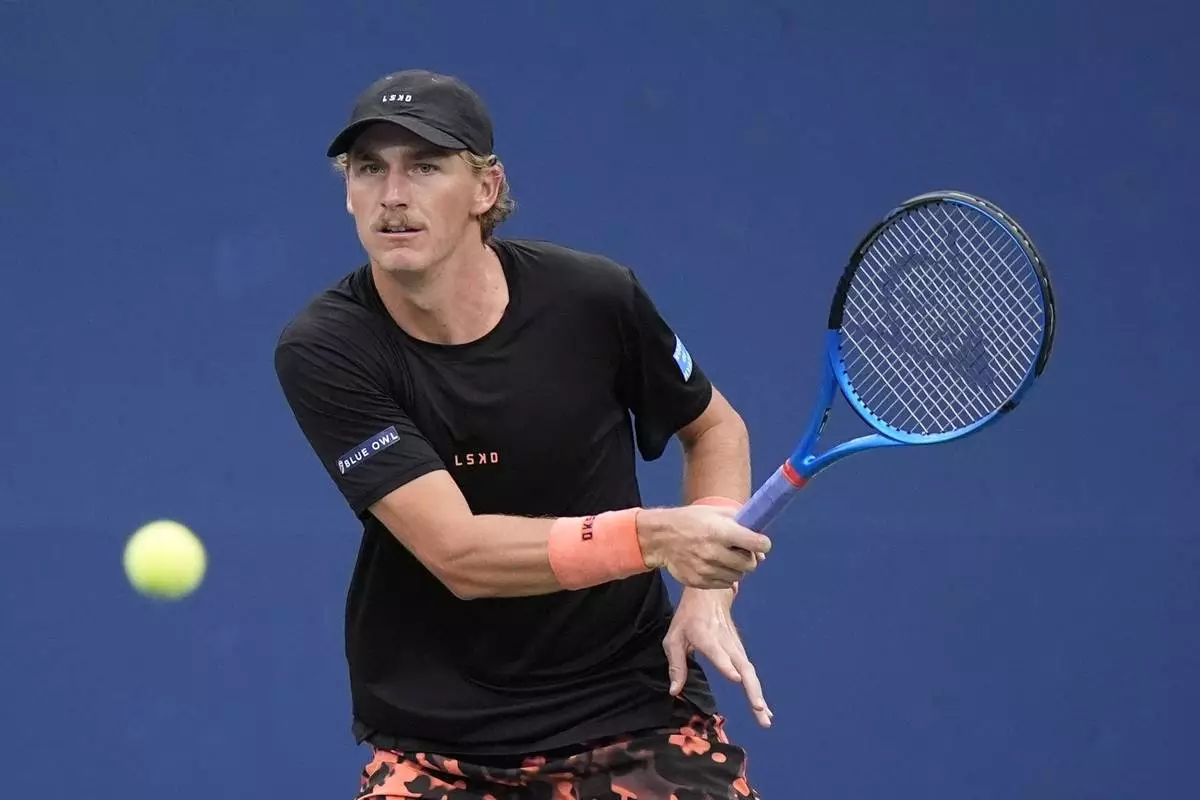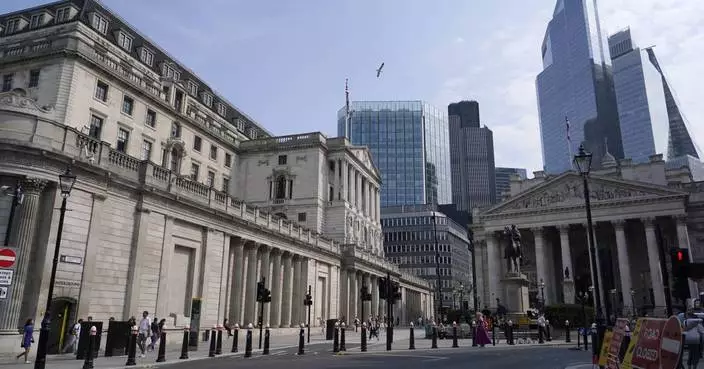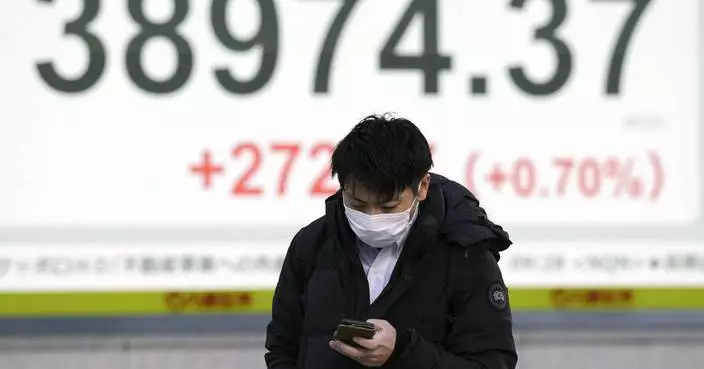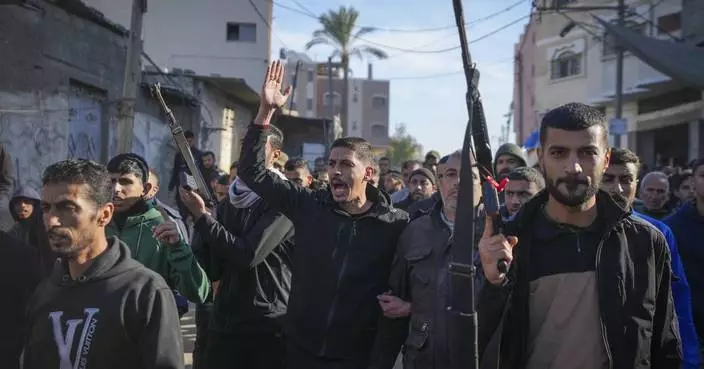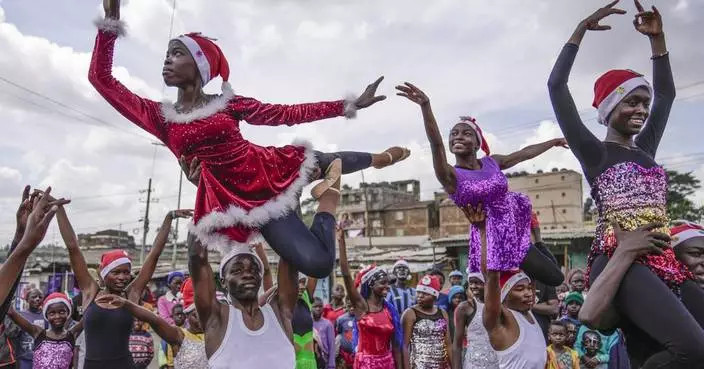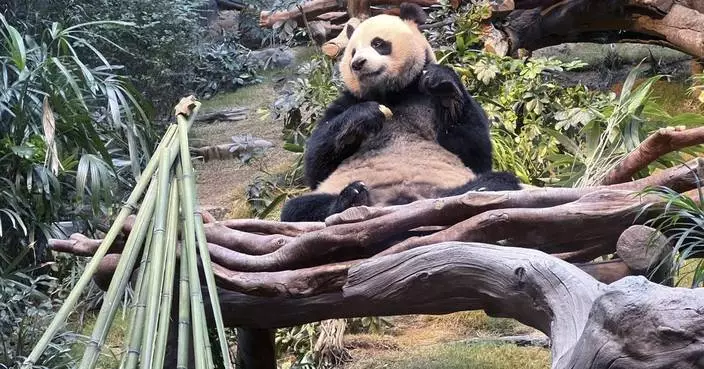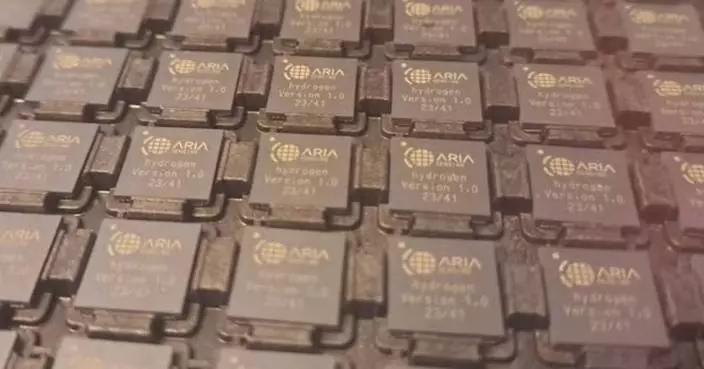KANGPOKPI, India (AP) — Phalneivah Khonsai ran for her life when violence struck her neighborhood in India's restive northeast, carrying just the bare essentials in the hope that she and her family could return soon.
Khonsai, her husband and three children left behind their house, which was torched by a mob, and made for the hills, where thousands of people from their community headed for safety.
That was in May last year. Almost 19 months later, Khonsai, 35, is still away from home, living in a government building that was turned into a relief center with squalid conditions and little privacy.
The relief camp is in Kangpokpi, about 50 kilometers (30 miles) from Imphal, the capital of India's northeastern Manipur state, which has been wracked by ethnic violence since last year. In the building’s damp and dark interior, fabric partitions separate at least 75 families like hers driven away from their homes.
“It is very difficult to live here,” Khonsai said, as women went about their daily chores such as washing clothes and dishes.
The violent ethnic clashes erupted last year between the majority Meitei community and the minority Kuki-Zo tribes in Manipur. The conflict has claimed more than 250 lives and displaced at least 60,000 people.
The state remains divided into two ethnic zones, one controlled by the Meiteis and the other by the Kuki-Zo community. The factions have formed armed militias that patrol roads checking for signs of their rivals. Borders and buffer zones guarded by security forces separate the two regions. Youths spend nights guarding vulnerable villages.
Khonsai, a Kuki, said the struggles of living in a relief center are taking a toll on the family's health but they can't go back home because they fear for their lives.
“If we go back, they will kill us. There is no hope for going back,” she said.
The Meiteis, who are predominantly Hindus, live in the Imphal Valley and nearby districts, while the Kuki-Zos live in hilly areas. The violence began last year when Meiteis demanded that they be listed by the government as a Scheduled Tribe, which would bring them more benefits such as quotas in jobs and educational institutions. That categorization would also bar non-Meiteis from buying land in the Meiteis' strongholds in the Imphal Valley.
The Kukis opposed this, saying such benefits should be given only to tribal groups that are less developed economically and less educated.
Soon, protests by both sides turned violent. Each side rampaged through villages, torching houses, massacring civilians and driving tens of thousands from their homes. Violence had receded in recent months, except for occasional flareups, but returned in November when 10 people were killed by paramilitary soldiers.
The Kuki-Zo community has been particularly hit hard by the violence. They accuse state Chief Minister N. Biren Singh of siding with the Meiteis and have sought his removal. They now seek federal rule over the state and administrative autonomy for the community.
Singh, a Meitei, has denied the accusations. His administration says people from the hill tribes — who share ethnic lineage with Myanmar’s Chin tribe — are using illegal drugs to finance a war against the Hindu community. Manipur’s government is led by Prime Minister Narendra Modi’s Hindu nationalist Bharatiya Janata Party.
The displacement crisis has, however, impacted both communities. While most of the displaced from the Kuki-Zo community have gone to the hills, the Meiteis have taken shelter in refugee camps in Imphal. The mistrust between the two communities is far from over, with people from each side unable to venture into the other’s zone.
Yengsom Junksom Memi, a Meitei, used to live in Kangpokpi until attackers rampaged her home and forced her family to run for their lives. Memi first took refuge in a police station before moving to a relief center in Imphal where she lives with 600 other displaced Meiteis. She said her house has been taken over by the attackers.
“We have no future left. It is difficult to even manage food in the morning and evening,” Memi said.
Ngamminlun Kipgen, spokesperson for the Committee on Tribal Unity, which represents Kukis, blamed the federal government for failing to end the violence.
“I think the prime minister needs to intervene," Kipgen said.
India's opposition parties have been urging Modi to visit Manipur. Modi has not visited the state since the violence started but has instructed his home minister, Amit Shah, to find a solution.
Kipgen said a division of the state into two separately administered parts, one for the Kukis and the other for Meiteis, could calm the situation.
“The nation must understand that the Kukis and the Meiteis for the time being are not able to live together, so the state or the central government should not force both communities at this critical juncture to come together,” Kipgen said.

CORRECTS PLACE- A Kuki tribal woman Phalneivah Khonsai, 35, talks to Associated Press in a relief camp in Kangpokpi, Manipur, Monday, Dec. 16, 2024. Khonsai ran for her life when violence struck her neighbourhood in India's restive northeast, carrying just the bare essentials in the hope that her family would return soon. Khonsai, her husband and three children left behind their house, which was torched by a mob, and made for the hills where thousands of people from their community were heading for safety. (AP Photo/Rishi Lekhi)
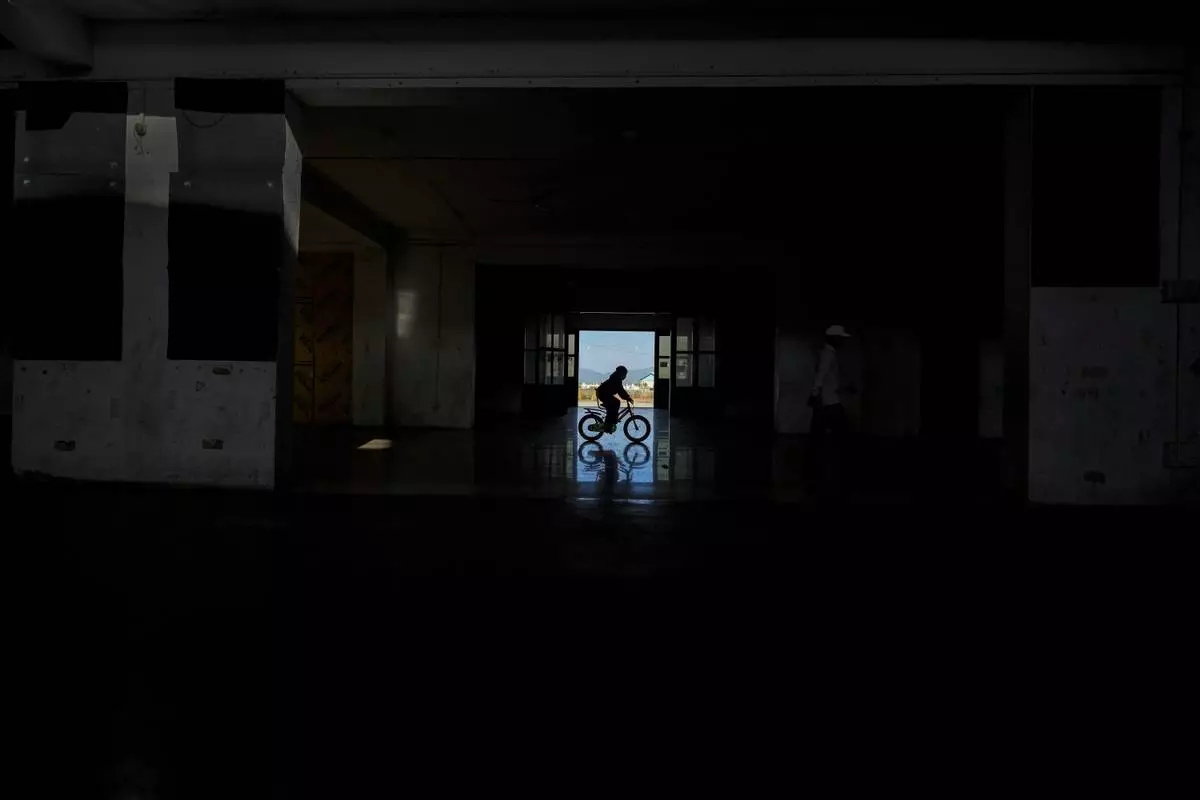
A Meitei boy rides on a bicycle in a relief camp in Imphal, Manipur, Monday, Dec. 16, 2024. (AP Photo/Anupam Nath)
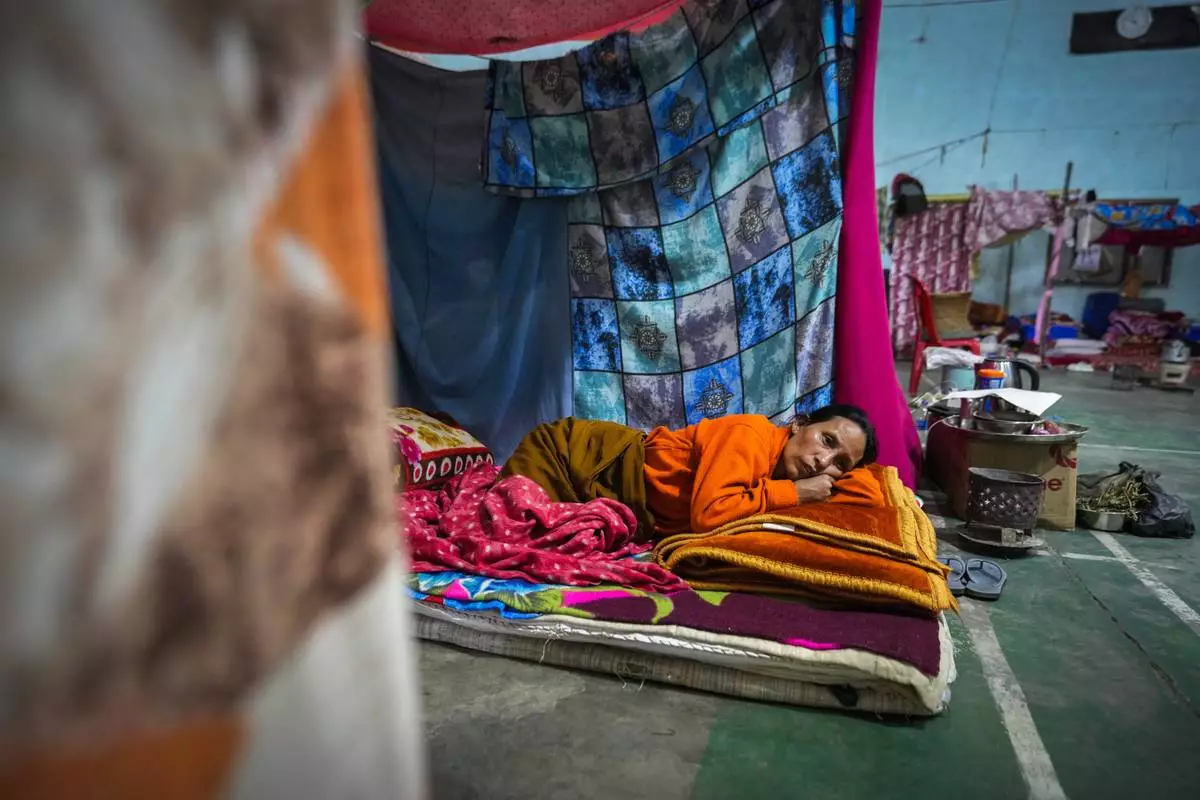
A Meitei woman rests in a relief camp in Imphal, Manipur, Monday, Dec. 16, 2024. (AP Photo/Anupam Nath)
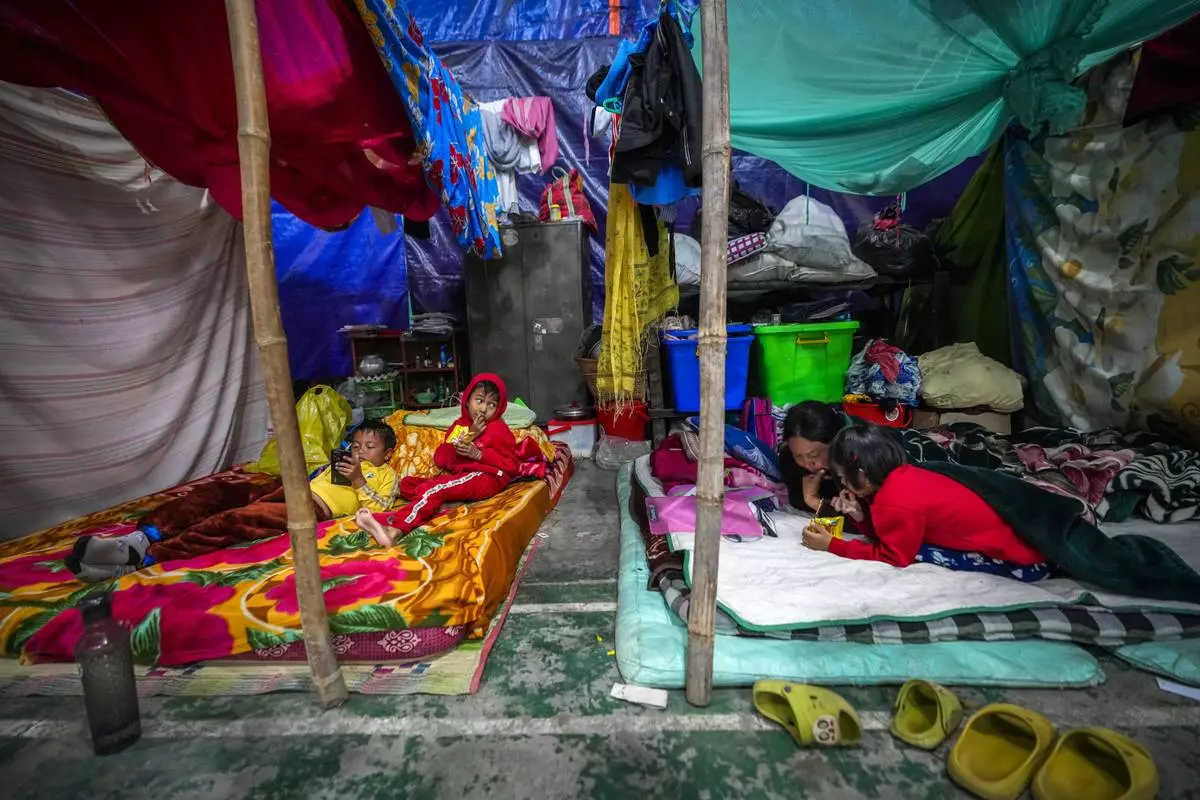
A Meitei woman and children take rest in a relief camp in Imphal, Manipur, Monday, Dec. 16, 2024. (AP Photo/Anupam Nath)
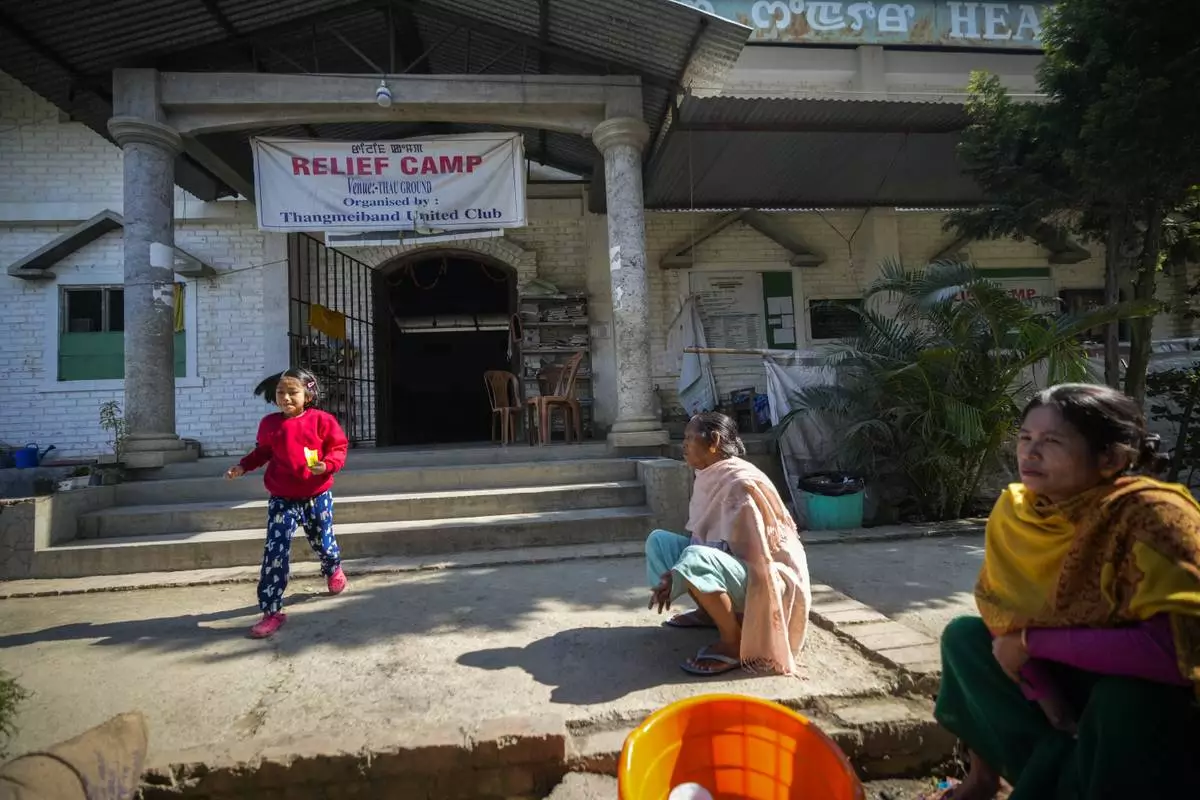
A Meitei girl plays in a relief camp in Imphal, Manipur, Monday, Dec. 16, 2024. (AP Photo/Anupam Nath)
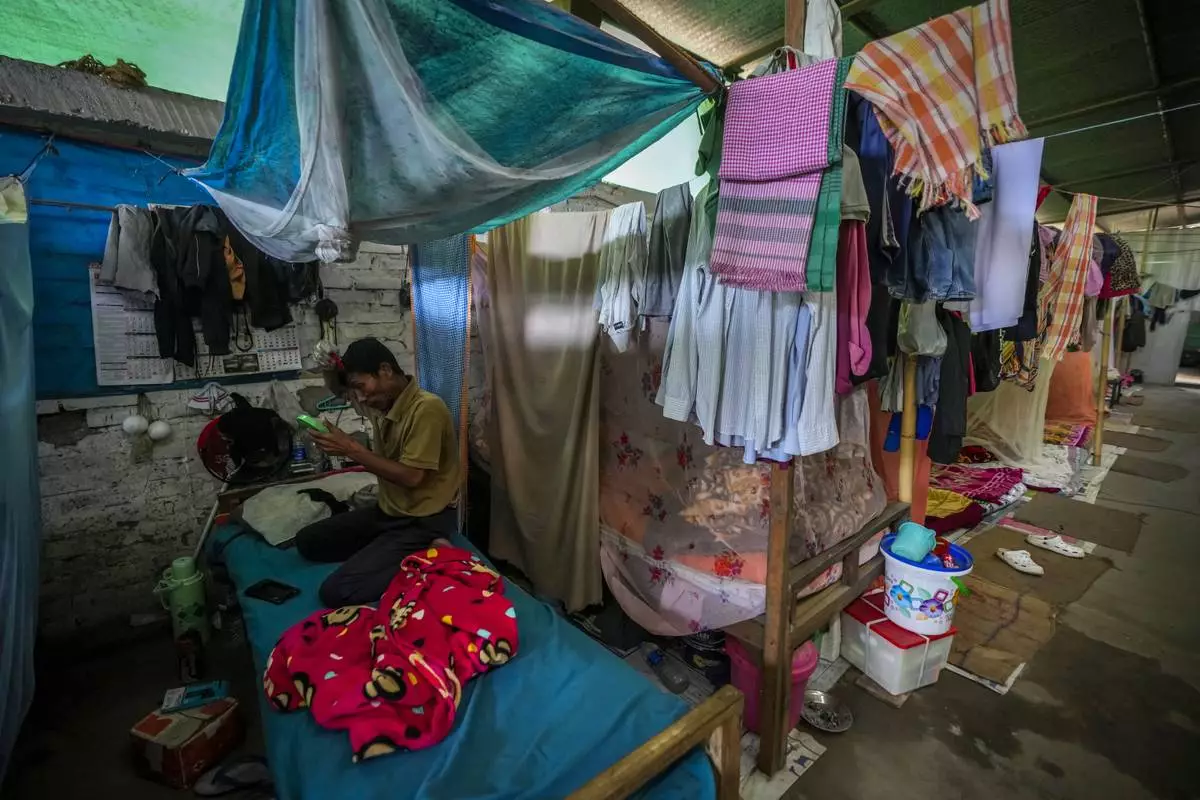
A Meitei man combs his hair in a relief camp in Imphal, Manipur, Monday, Dec. 16, 2024. (AP Photo/Anupam Nath)
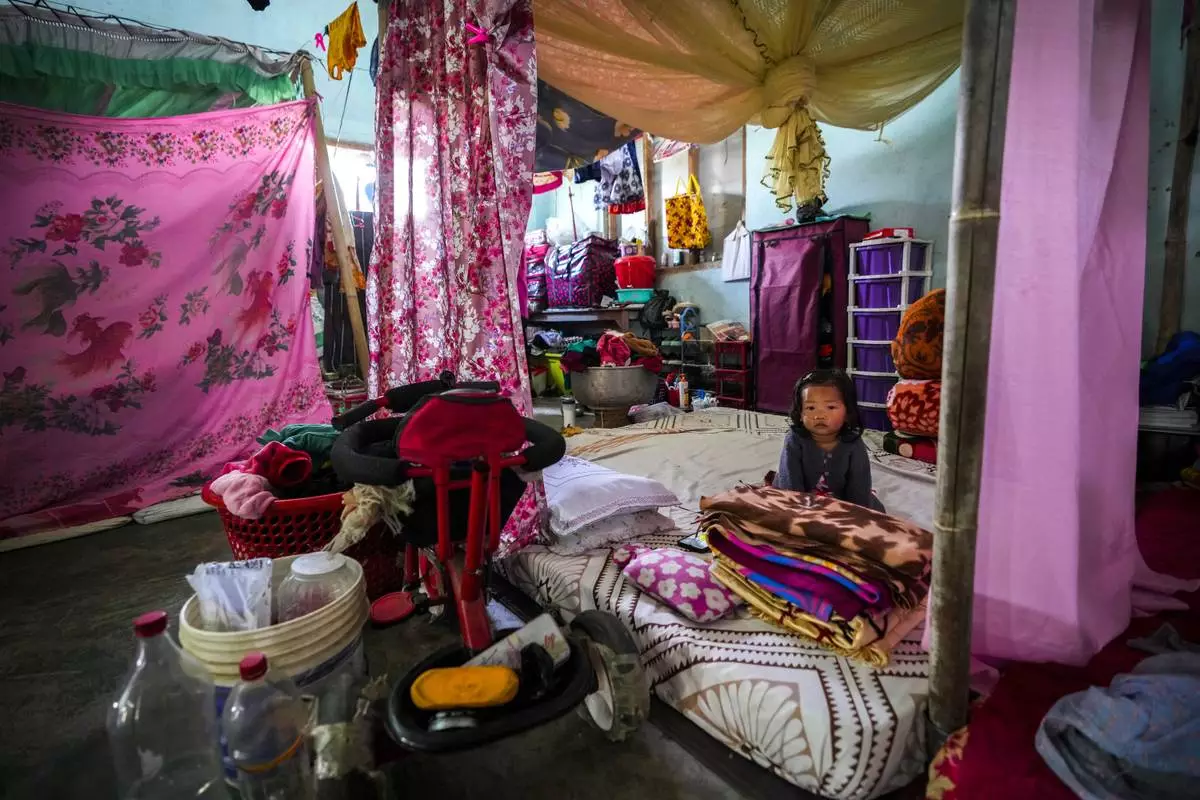
A Meitei girl sits in a relief camp in Imphal, Manipur, Monday, Dec. 16, 2024. (AP Photo/Anupam Nath)
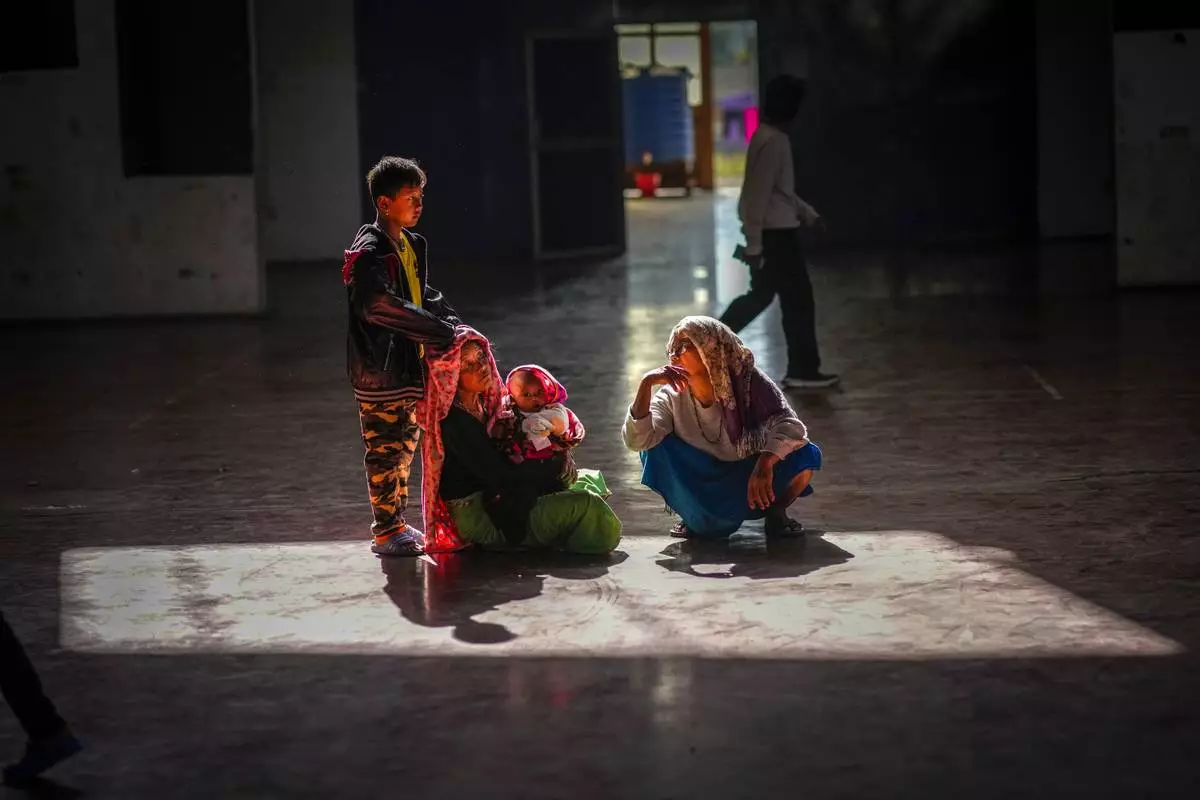
A Meitei family sits in a relief camp in Imphal, Manipur, Monday, Dec. 16, 2024. (AP Photo/Anupam Nath)
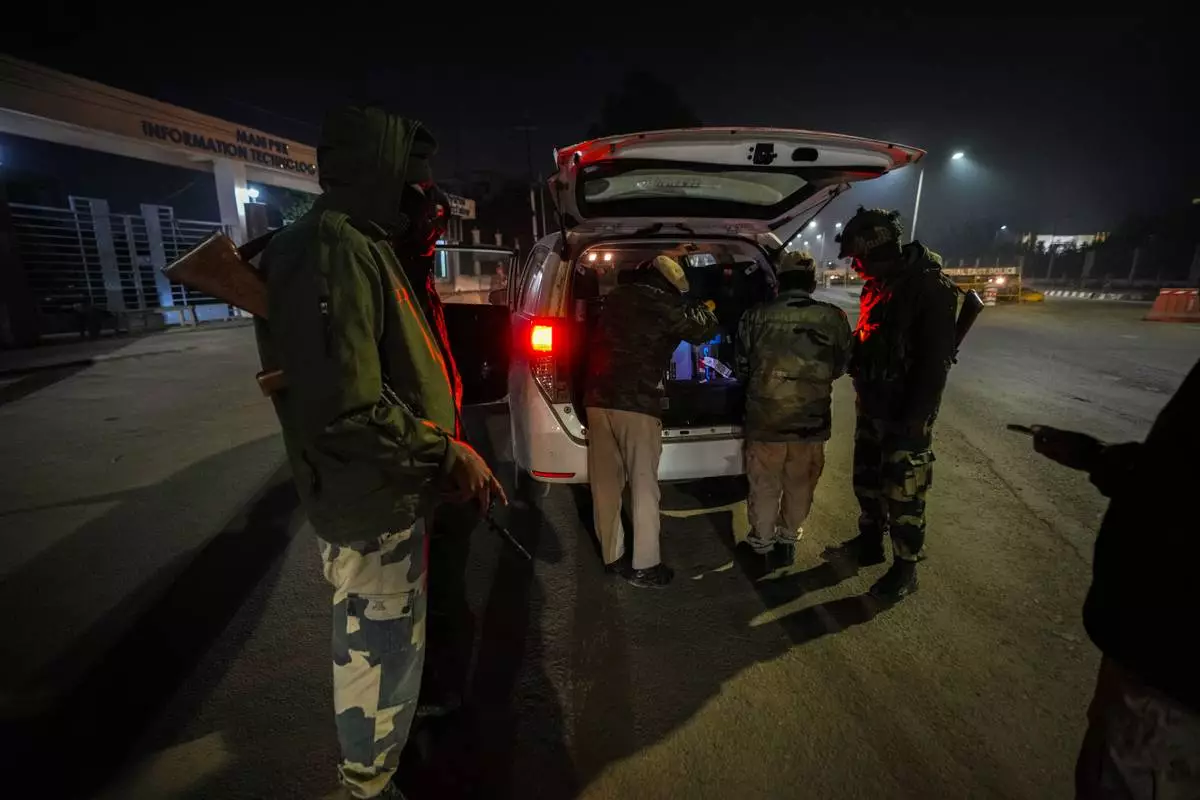
Security personnel check vehicles in Imphal, Manipur, Sunday, Dec. 15, 2024. (AP Photo/Anupam Nath)
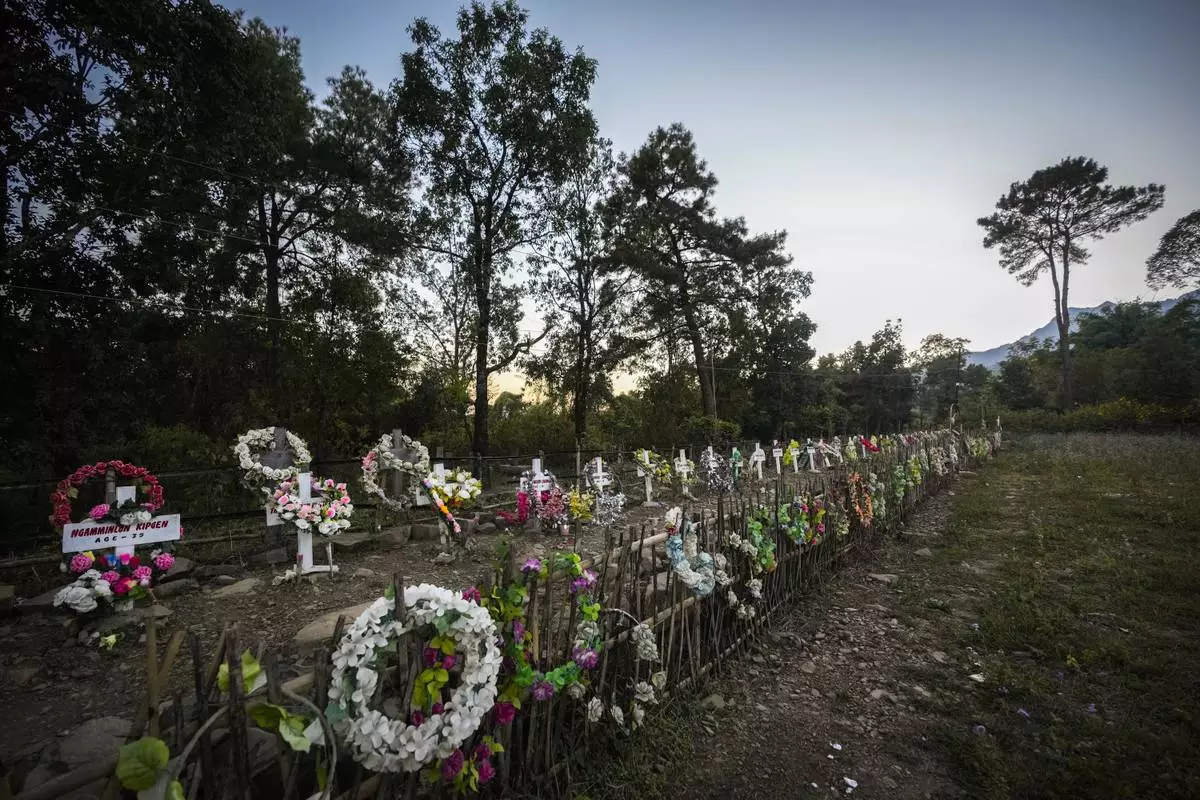
Flowers are placed at a burial ground of Kuki victims died during Kuki and Meitei clashes in Kangpokpi, Manipur, Sunday, Dec. 15, 2024. (AP Photo/Anupam Nath)
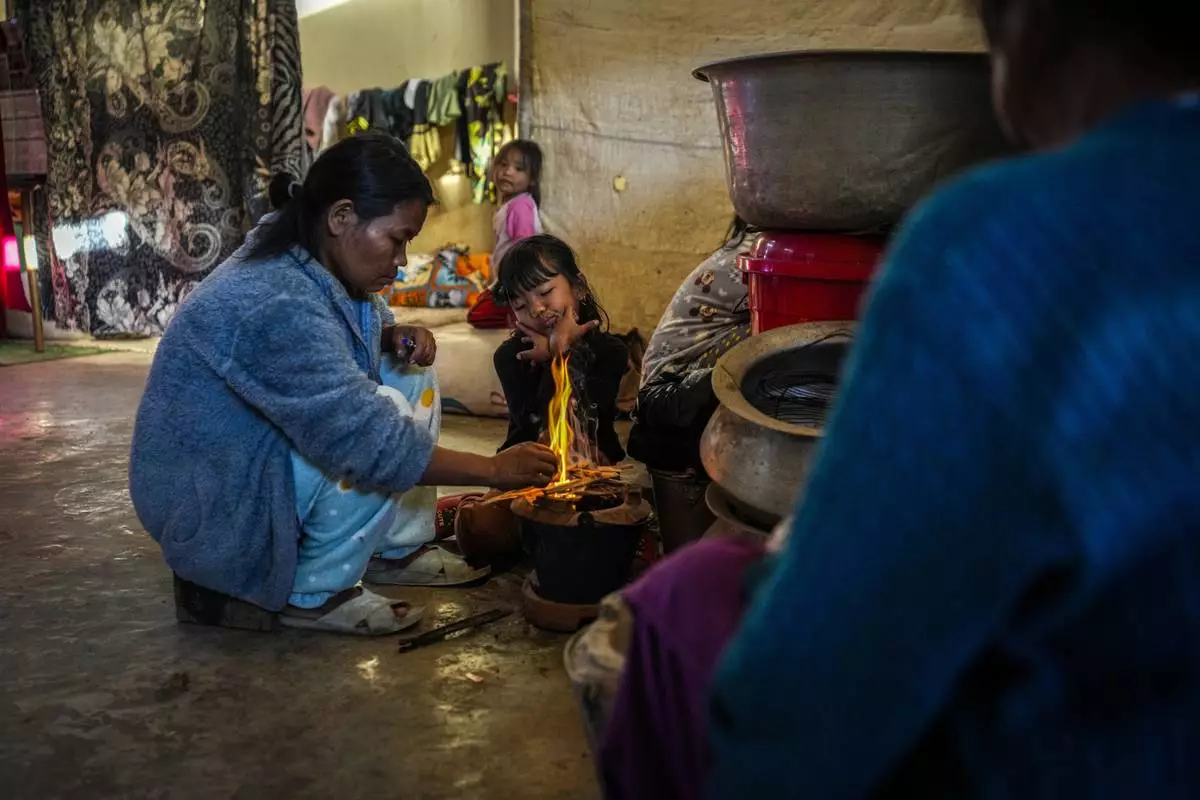
A Kuki tribal woman lights fire to prepare food in a relief camp in Kangpokpi, Manipur, Sunday, Dec. 15, 2024. (AP Photo/Anupam Nath)
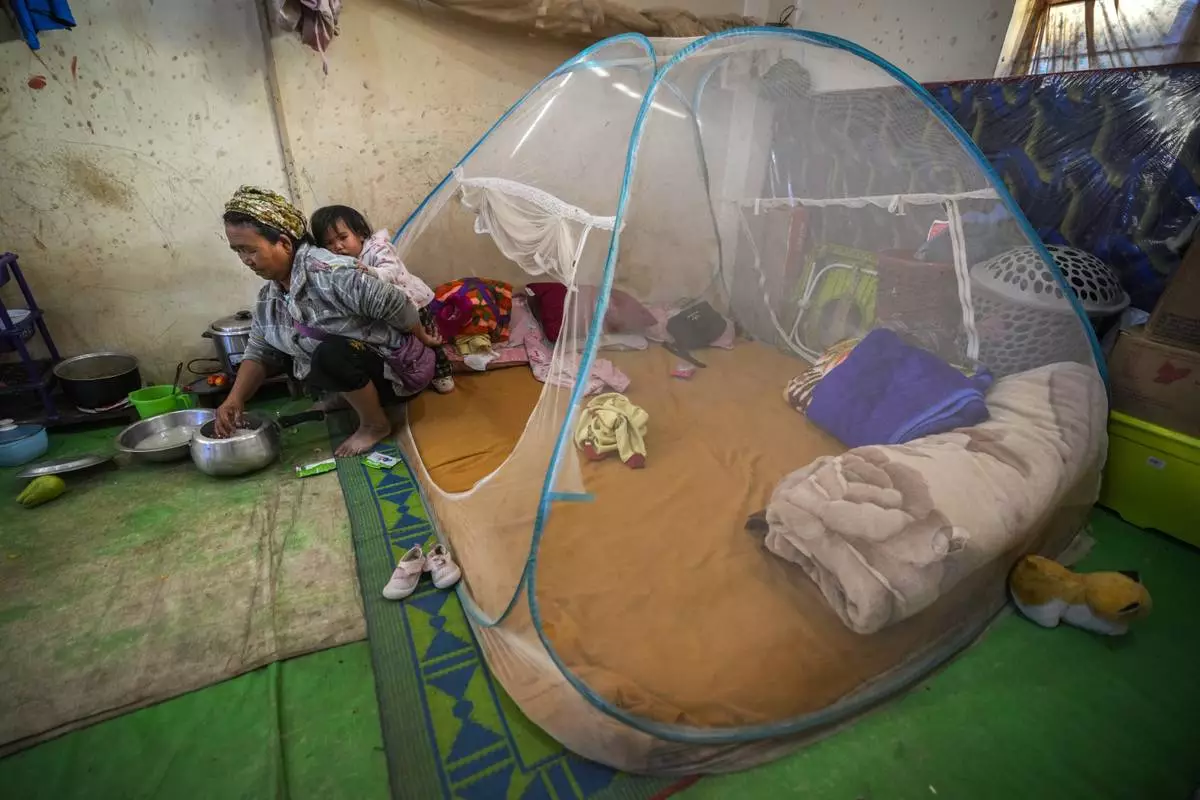
A Kuki tribal woman with a child prepares rice in a relief camp in Kangpokpi, Manipur, Sunday, Dec. 15, 2024. (AP Photo/Anupam Nath)
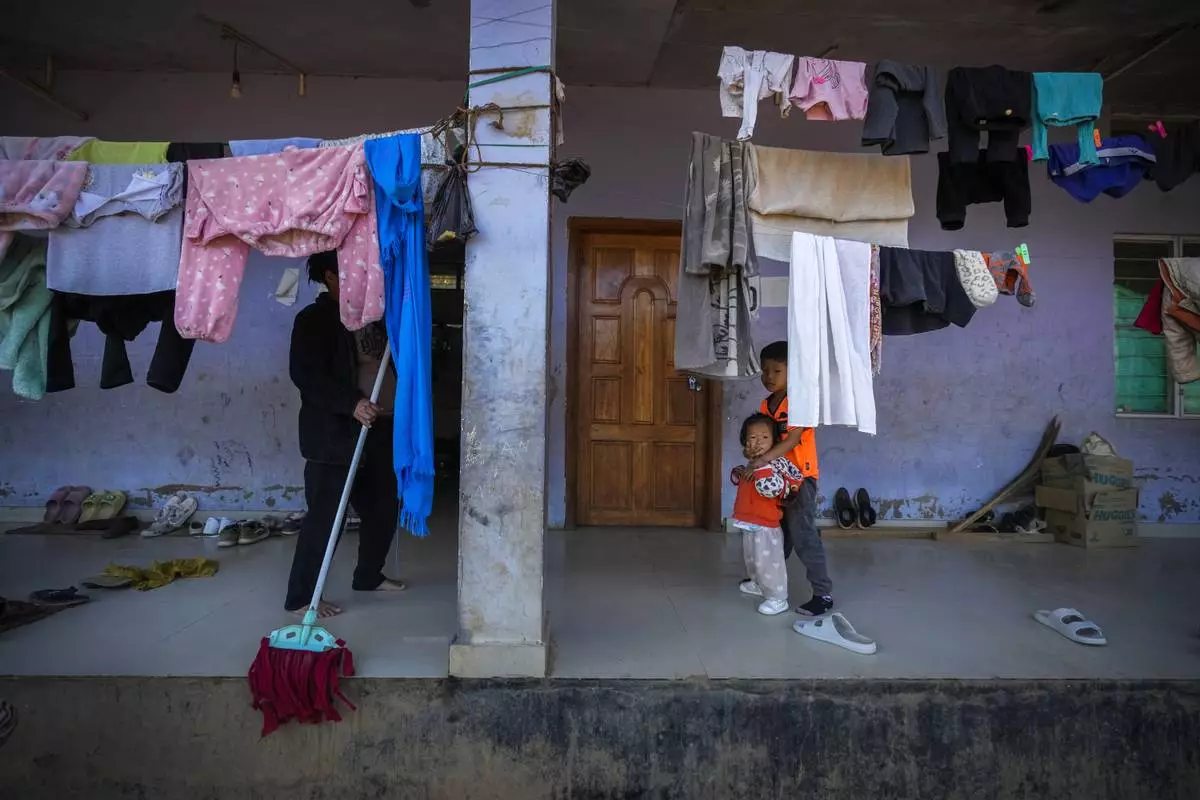
Kuki tribal children play in a relief camp in Kangpokpi, Manipur, Sunday, Dec. 15, 2024. (AP Photo/Anupam Nath)
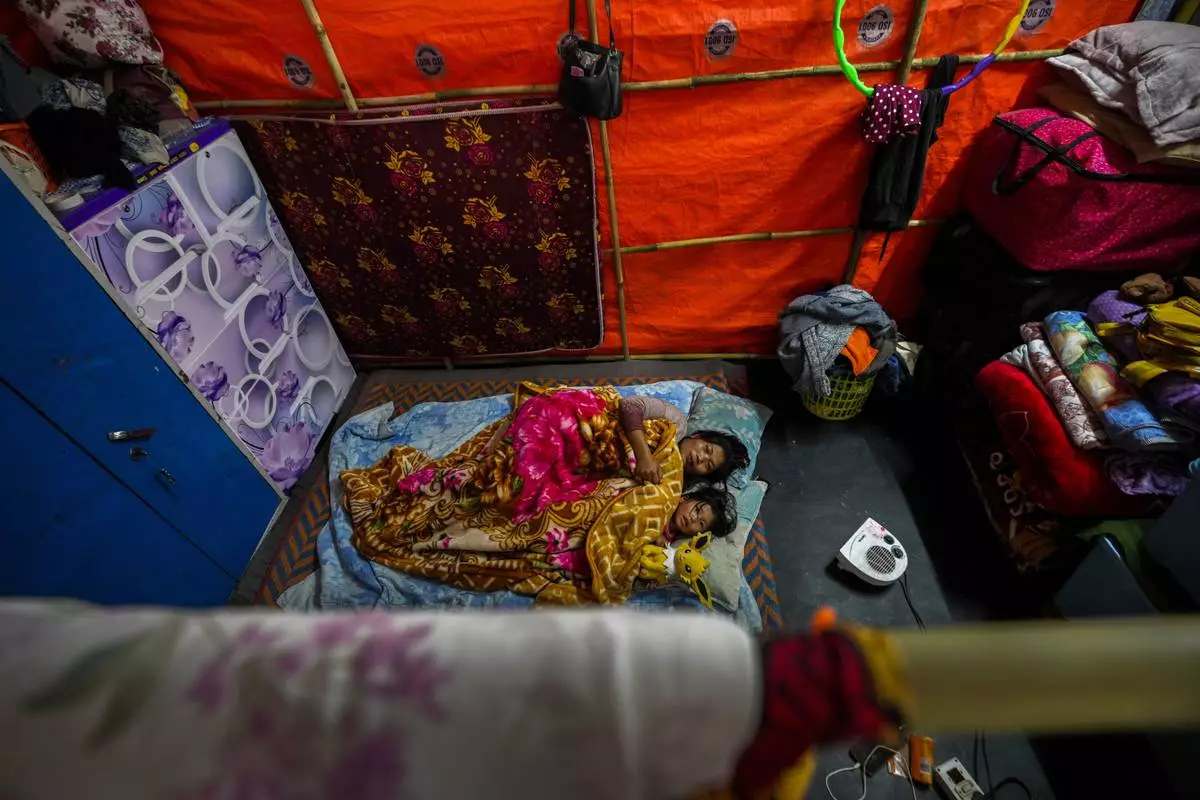
A Kuki tribal woman and her daughter rest in a relief camp in Kangpokpi, Manipur, Sunday, Dec. 15, 2024. (AP Photo/Anupam Nath)
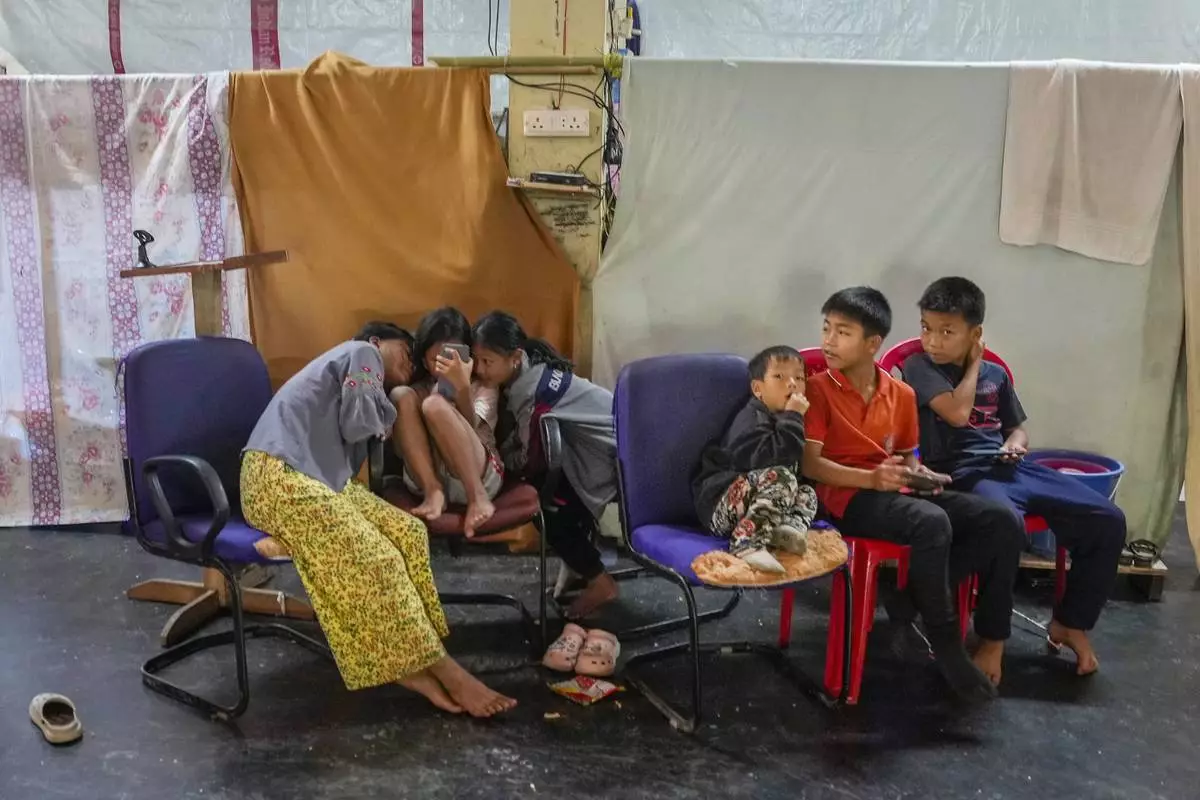
Kuki tribal children sit in a relief camp in Kangpokpi, Manipur, Sunday, Dec. 15, 2024. (AP Photo/Anupam Nath)
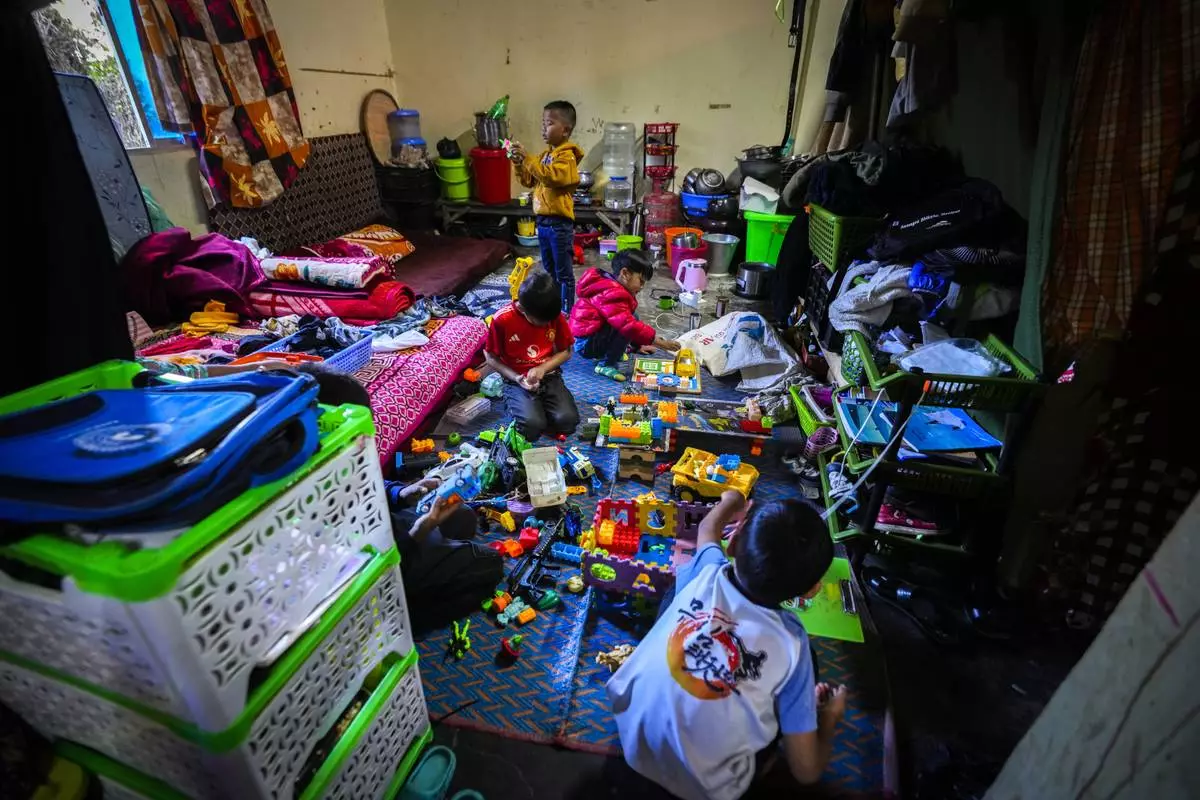
Kuki tribal children play in a relief camp in Kangpokpi, Manipur, Sunday, Dec. 15, 2024. (AP Photo/Anupam Nath)
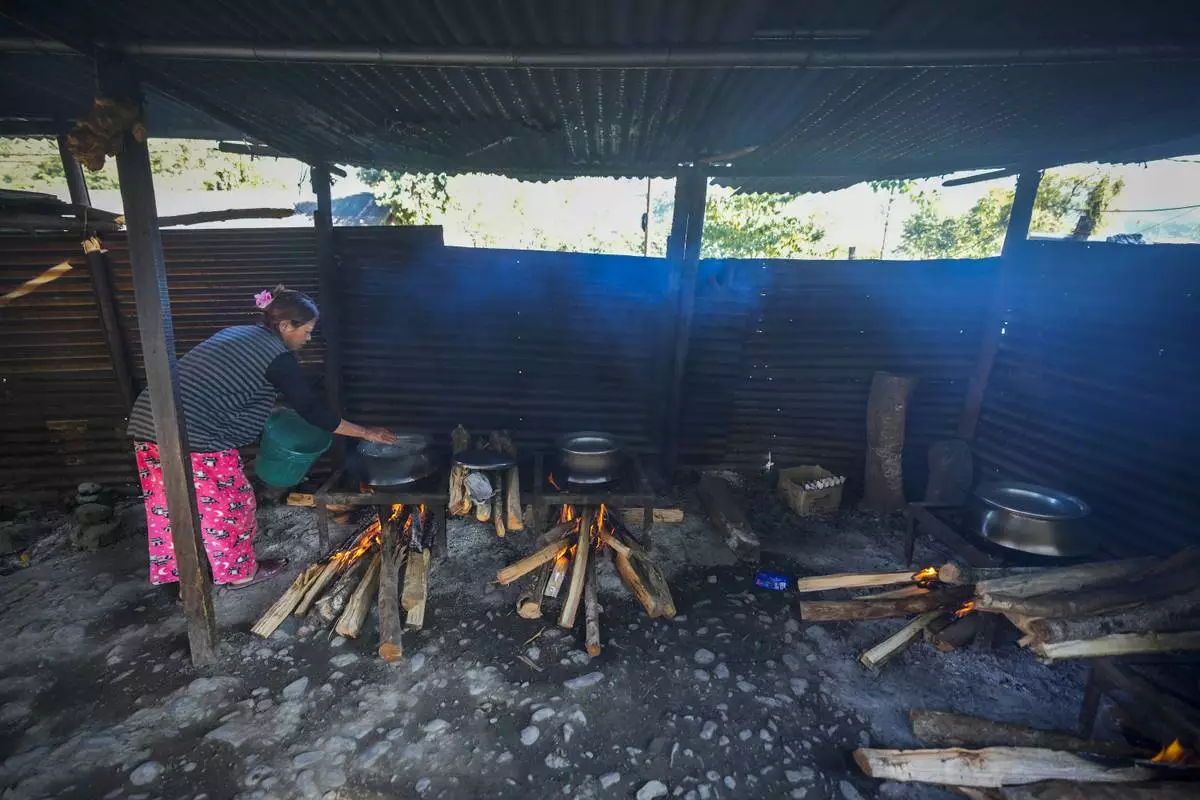
A Kuki tribal cooks food in a relief camp in Kangpokpi, Manipur, Sunday, Dec. 15, 2024. (AP Photo/Anupam Nath)
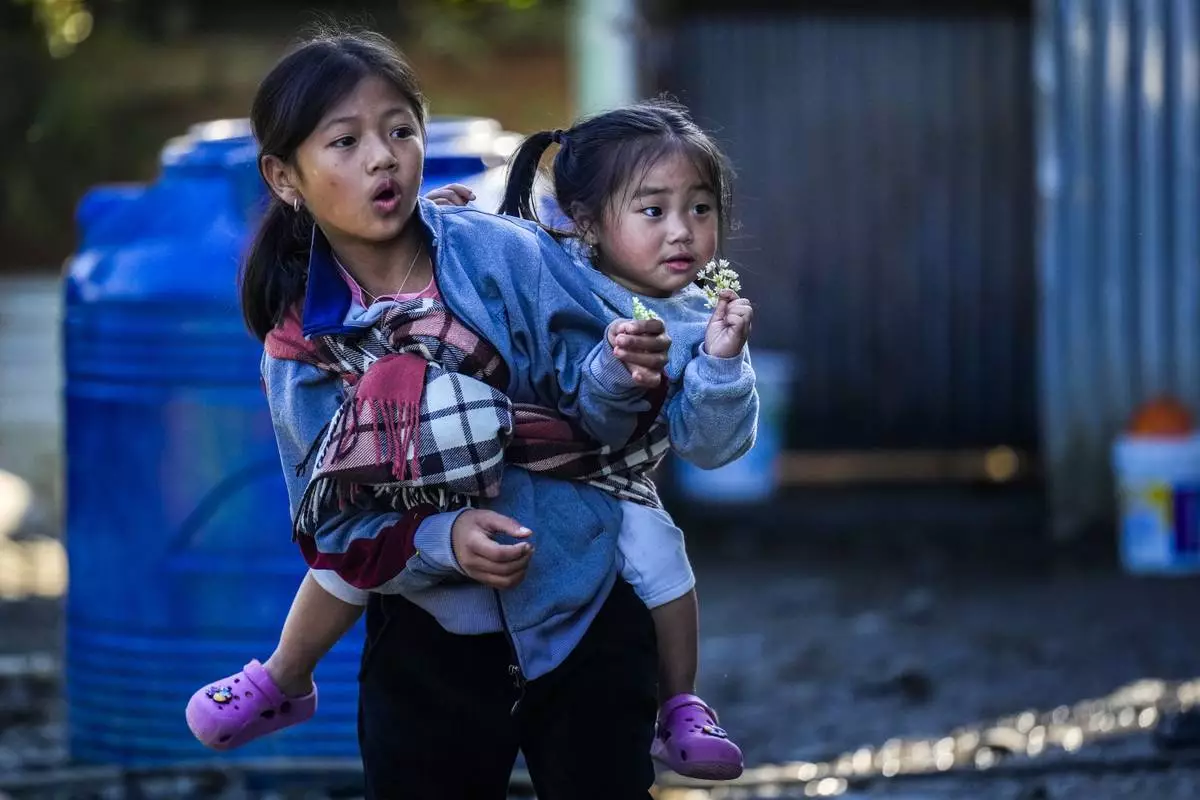
Kuki tribal children play outside their relief camp in Kangpokpi, Manipur, Sunday, Dec. 15, 2024. (AP Photo/Anupam Nath)
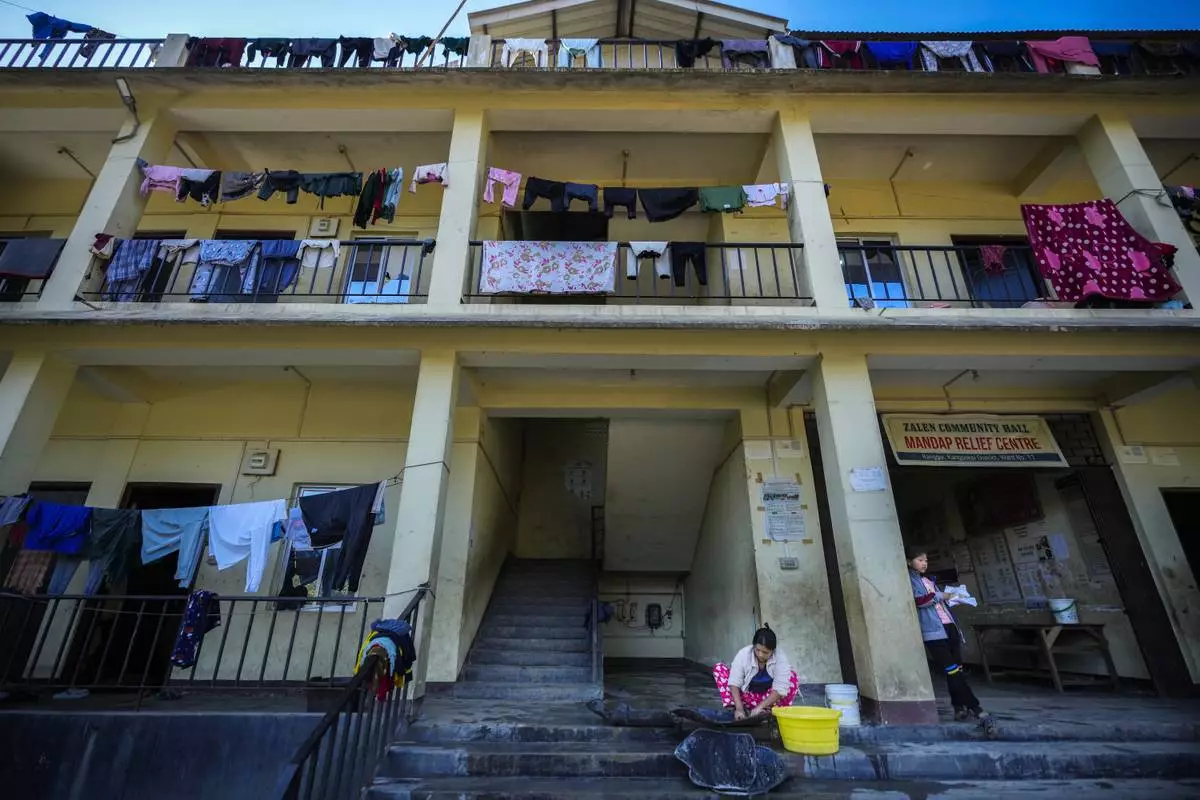
A Kuki tribal woman washes cloths outside a relief camp in Kangpokpi, Manipur, Sunday, Dec. 15, 2024. (AP Photo/Anupam Nath)
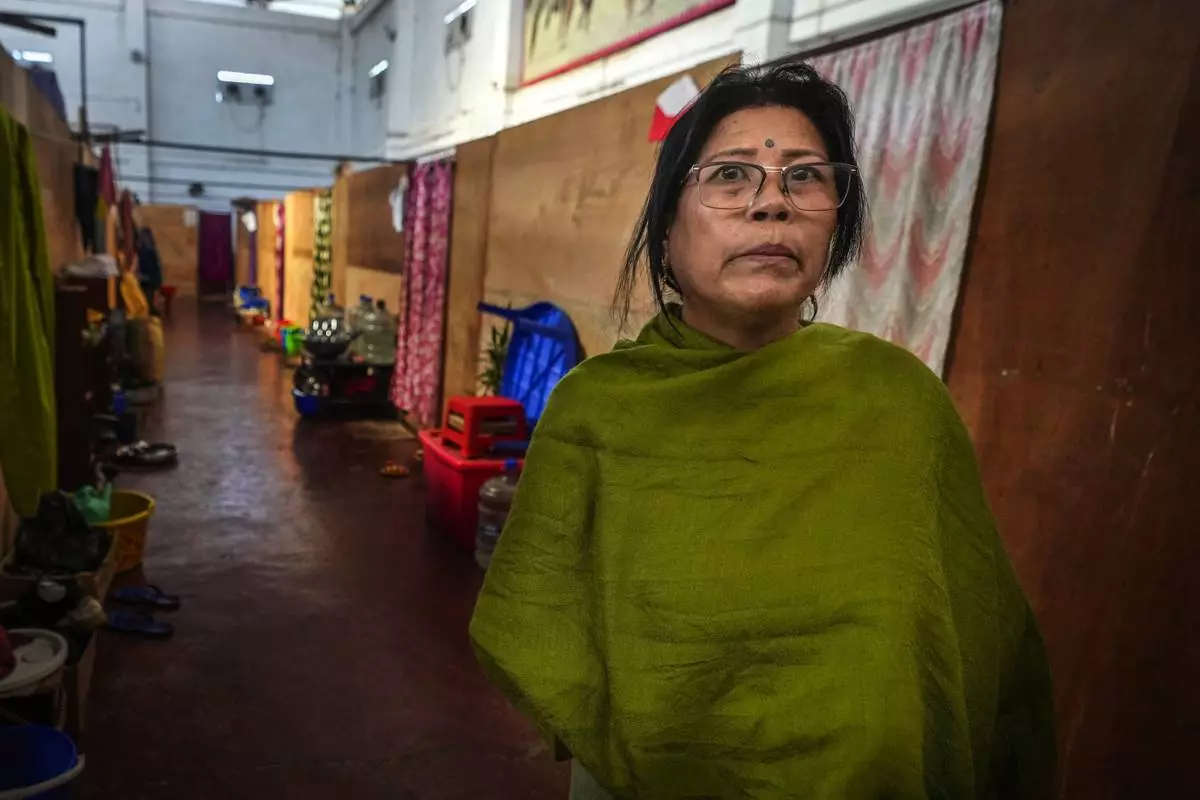
Yengsom Junksom Memi, a Meitei, talks to Associated Press n a relief camp in Imphal, Manipur, Monday, Dec. 16, 2024. Mimi, used to live in Kangpokpi when attackers rampaged her home and forced her family to run for their lives, Memi first took refuge in a police station, before moving to a relief center in Imphal where she lives with other 600 displaced Meiteis. She said her house has since been taken over by the attackers. (AP Photo/Anupam Nath)
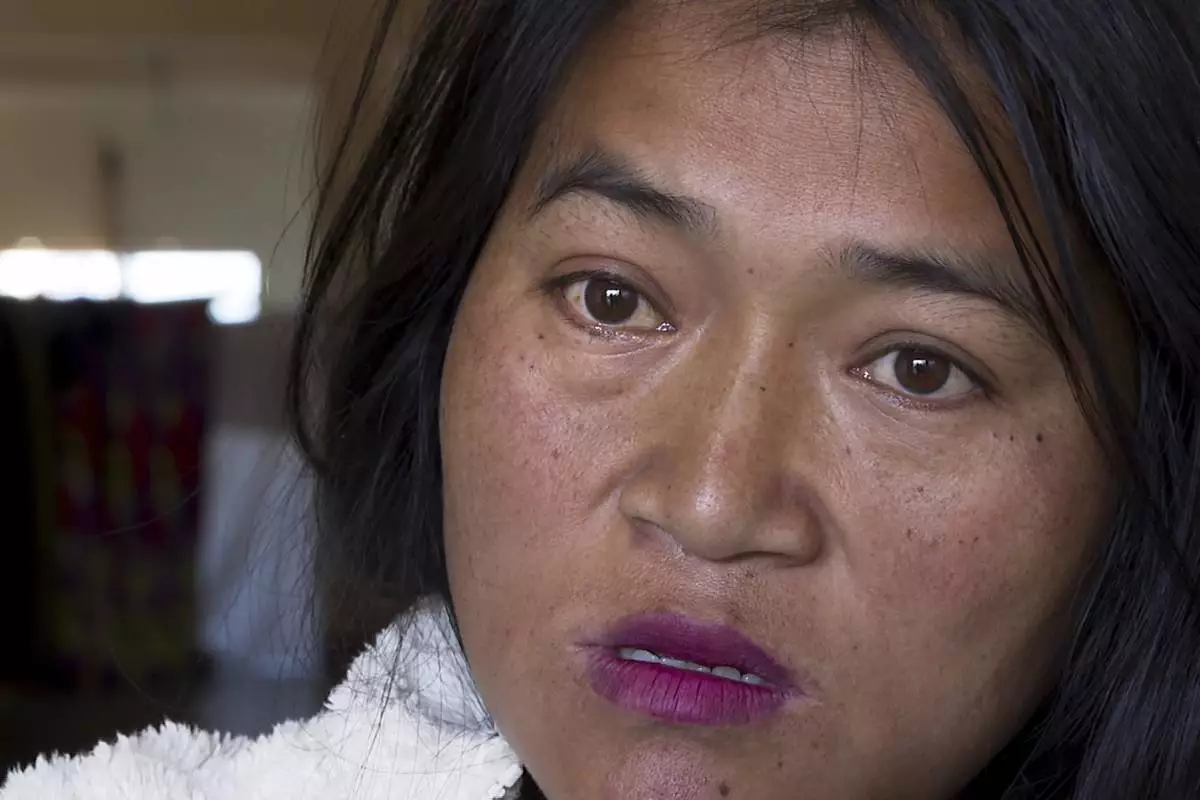
Phalneivah Khonsai, 35, talks to Associated Press in a relief camp in Imphal, Manipur, Monday, Dec. 16, 2024. Khonsai ran for her life when violence struck her neighbourhood in India's restive northeast, carrying just the bare essentials in the hope that her family would return soon. Khonsai, her husband and three children left behind their house, which was torched by a mob, and made for the hills where thousands of people from their community were heading for safety. (AP Photo/Rishi Lekhi)


